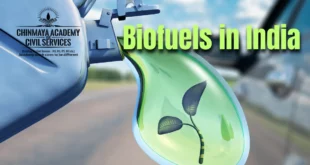- In George Orwell’s Animal Farm, ‘Squealer, the small fat pig’ was a brilliant orator who always spoke to the hard-working animals about a ‘readjustment of rations’, but ‘never as a “reduction”’.
- The Government’s latest announcement on free foodgrains is a case of similar doublespeak. The Cabinet has announced that under the new avatar of the Pradhan Mantri Garib Kalyan Anna Yojana (PMGKAY), 810 million National Food Security Act (NFSA) beneficiaries will receive five kilos of free foodgrains every month in 2023.
- But this quantum was already legally guaranteed under the NFSA law, the flagship entitlement of the earlier United Progressive Alliance government.
- The only difference is that in January 2023, a family of five can collect 25 kg for free. Notably, this is a reduction by half of the 50 kg of rice (25 kg free under the earlier PMGKAY and 25 kg at ₹3 under the NFSA) they received in December 2022 from ration shops with a modest payment of ₹75.
- So, a family will now have to purchase the remaining 25 kg from the market at the cheapest possible price of ₹450 — which implies an additional expense of ₹375 to their monthly budget (The calculation is 1 kg at ₹18, or 25kg for ₹450).
The election angle
- Of course, the earlier version of PMGKAY could not be extended indefinitely, especially since the procurement of food stocks from the 2022 kharif harvest was lacklustre. The repeated extensions, for 28 months, seemed to be with an eye on State elections.
- The latest readjustment also seems politically motivated to appeal to voters in nine States that go to polls in 2023. Of course, this new giveaway is also likely to be again extended for another six months to cover the all-important 2024 general election.
- But this subsidy is duplicitous. Just a few months ago, the Prime Minister had denounced the ‘revdi’ culture of the distribution of freebies for votes by Opposition parties.
- Political scientist Steven Wilkinson argues that due to India’s ethnic heterogeneity and increasing electoral competition, all political parties prefer to differentiate themselves based on such patronage politics.
- The Bharatiya Janata Party (BJP), too, continues to focus on clientelism. More than 20 central government programmes have been named or renamed to credit the ‘Pradhan Mantri’.
Main flaws
- The PMGKAY’s real design flaw is its lack of universal coverage, especially as ration records have not been updated since the 2011 Census — as per estimates, more than 40% of India’s population is currently excluded from both the NFSA and PMGKAY.
- In many villages and slums, the most marginalised castes and communities, especially migrants, sex workers, the homeless and transgender persons are often without NFSA ration cards.
- However, Tamil Nadu, Odisha, Rajasthan, Chhattisgarh and West Bengal have either universalised or substantially expanded coverage with State cards.
- Even the Supreme Court of India, in an August 2022 order, had directed the central government to expand NFSA coverage.
- However, based on population projections, at least 100 million beneficiaries, especially children born in the last decade, are missing from ration lists. But the central government has not paid heed.
- The only partial exception is Uttar Pradesh, where the BJP State government provided free foodgrain with cooking oil, pulses and salt during the COVID-19 pandemic.
- This is considered to be one of the key reasons for the BJP’s electoral victory in the 2022 Uttar Pradesh Assembly elections.
- The central government also has every reason to feel the need to counter the political messaging of the Congress party-led Bharat Jodo Yatra. The padayatra’s message of unity and its spotlight on inflation and unemployment are increasingly resonating with citizens.
- In 2023, India is projected to overtake China as the most populous country. But with high levels of youth unemployment, this Indian demographic dividend, too, seems to be turning into a demographic disaster.
Undermining NREGA
- The central government has even squeezed the 100 days of work guaranteed under the National Rural Employment Guarantee Act (NREGA).
- This employer of the last resort scheme is being systematically undermined by acute Budget cuts, delayed payments and technological hurdles. In the period 2022-23, only 57 million households received NREGA work unlike 73 million last year. In West Bengal, pending wage payments of ₹2,744 due to labourers have even been withheld illegally for an entire year.
SOURCE: THE HINDU, THE ECONOMIC TIMES, PIB
 Chinmaya IAS Academy – Current Affairs Chinmaya IAS Academy – Current Affairs
Chinmaya IAS Academy – Current Affairs Chinmaya IAS Academy – Current Affairs



